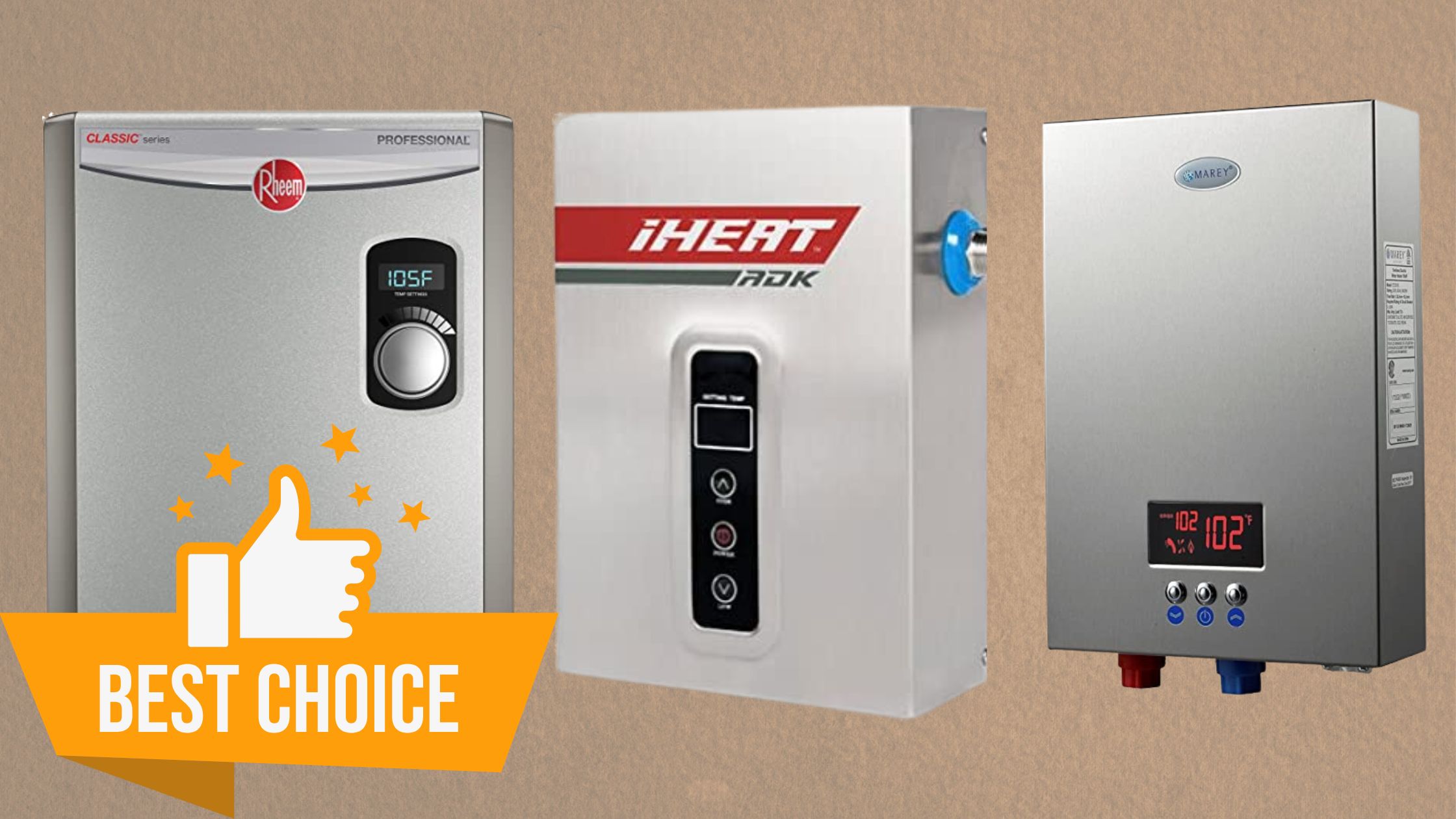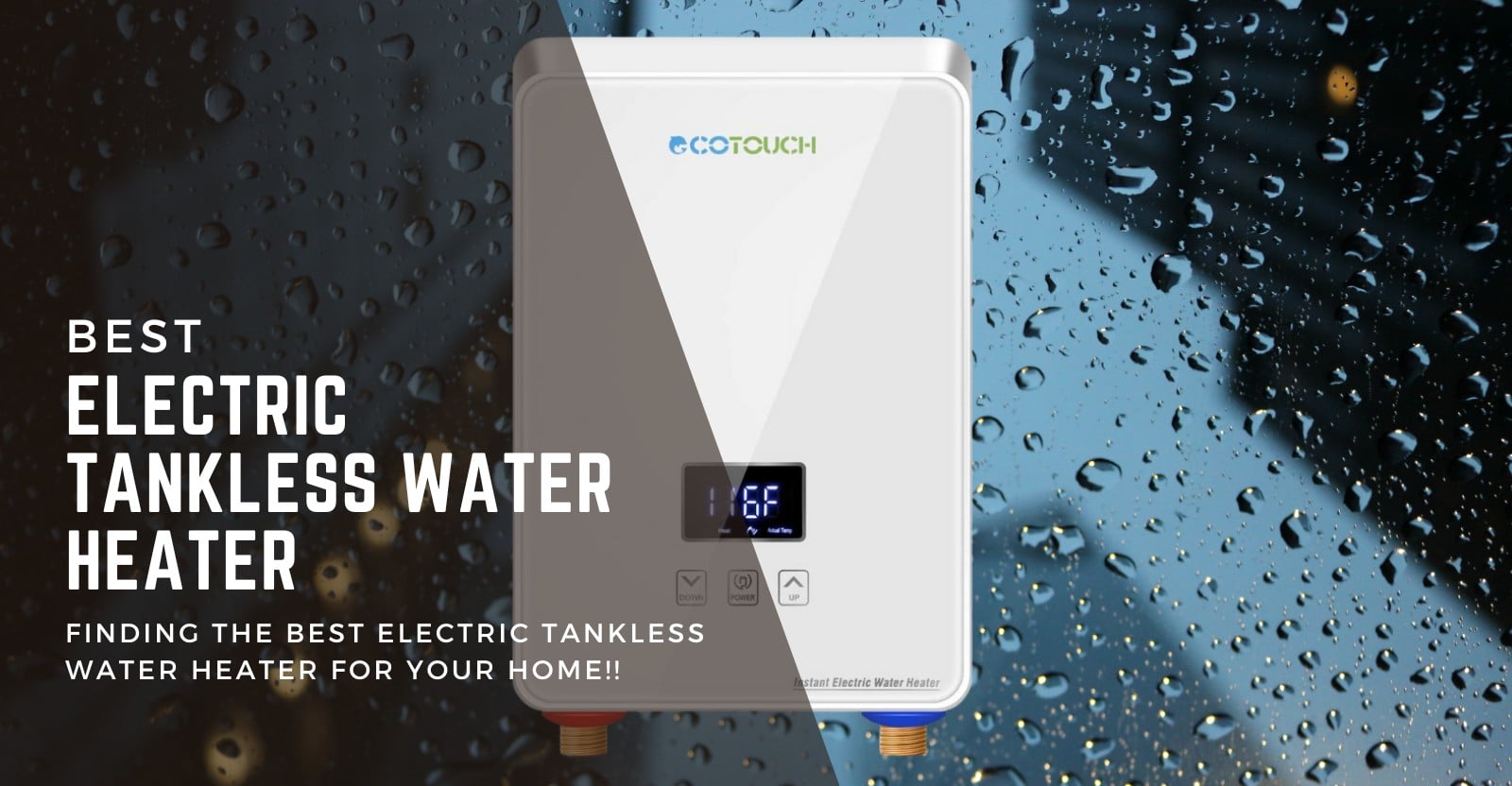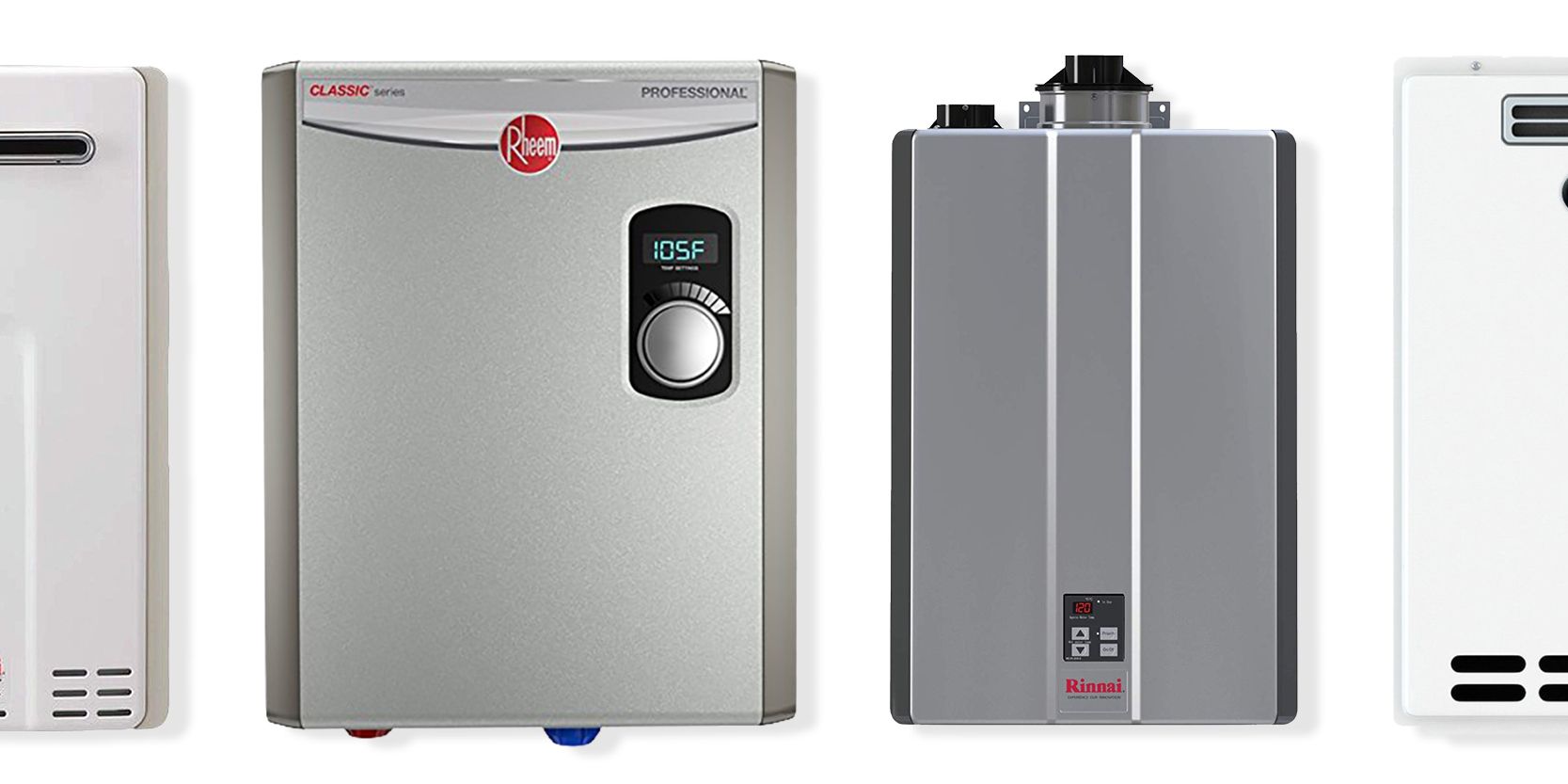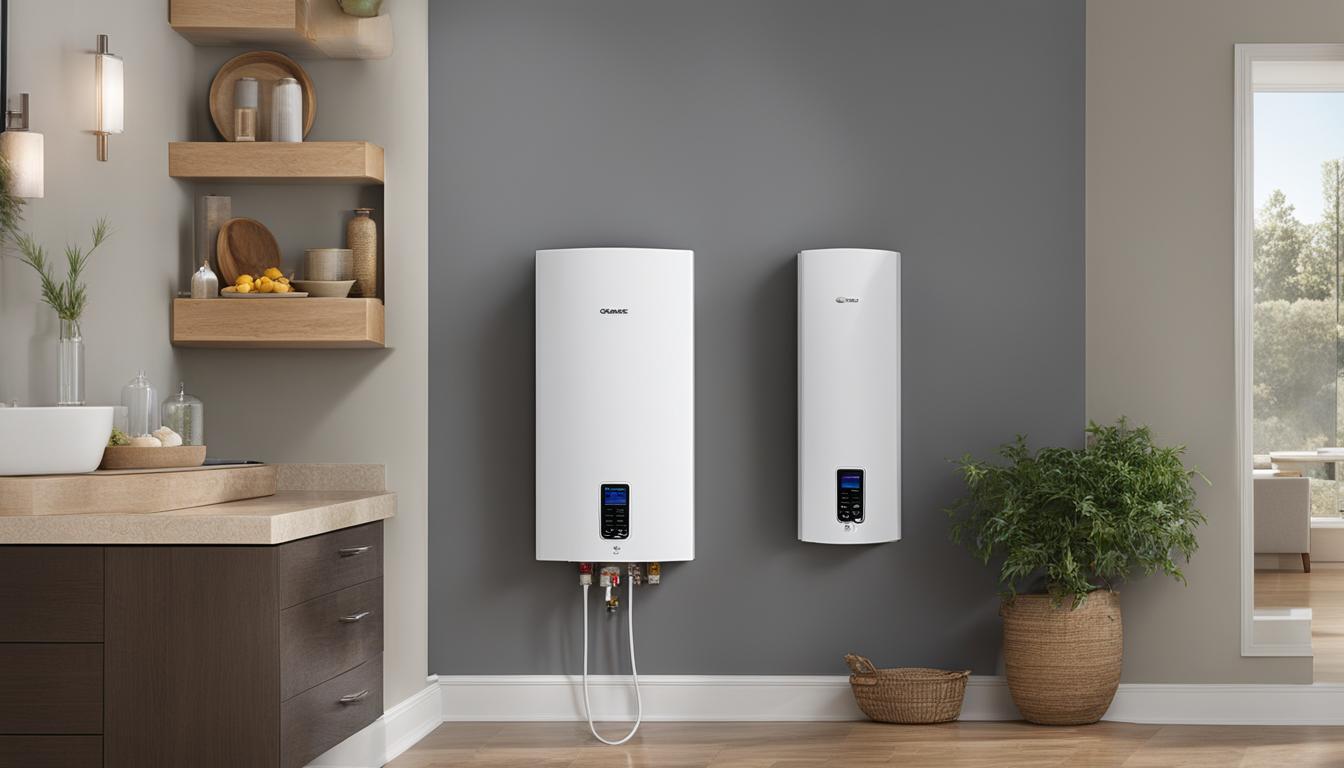Electric Tankless Hot Water Heater Reviews

Electric Tankless Hot Water Heater Reviews: A Comprehensive Guide
Electric tankless hot water heaters, also known as on-demand water heaters, are gaining popularity as homeowners seek energy-efficient and space-saving alternatives to traditional tank-style heaters. This guide provides a detailed overview of electric tankless heaters, including their pros and cons, key features, popular brands, and important considerations for making the right choice for your home or property.
How Electric Tankless Heaters Work
Unlike conventional water heaters that constantly heat and store water in a tank, electric tankless heaters only heat water when it's needed. When you turn on a hot water tap, cold water flows through the unit. A powerful heating element is activated, instantly raising the water temperature to the desired level. Once the tap is turned off, the heater shuts off, consuming no energy.
Advantages of Electric Tankless Heaters
- Endless Hot Water: The primary advantage is the ability to provide a continuous supply of hot water, eliminating the risk of running out during showers or other high-demand periods.
- Energy Efficiency: Tankless heaters are generally more energy-efficient than tank-style heaters, especially for households with low to moderate hot water usage. They eliminate standby heat loss, which is the energy wasted by constantly heating water in a tank.
- Space Saving: Their compact size allows for installation in smaller spaces compared to bulky tank heaters. This can free up valuable storage space in closets, basements, or garages.
- Longer Lifespan: Electric tankless heaters typically last longer than tank-style heaters, often exceeding 20 years with proper maintenance.
- Precise Temperature Control: Many models offer precise temperature control, allowing you to set the desired water temperature to your exact preference.
Disadvantages of Electric Tankless Heaters
- Higher Upfront Cost: Tankless heaters generally have a higher initial purchase price than tank-style heaters.
- Electrical Requirements: Electric tankless heaters require significant electrical power. They often necessitate upgrading your home's electrical panel to accommodate the high amperage draw. This can add to the overall installation cost.
- Flow Rate Limitations: While they provide endless hot water, tankless heaters have a limited flow rate. Running multiple hot water appliances simultaneously may exceed the heater's capacity, resulting in a drop in water temperature.
- Cold Water Sandwich: A brief period of cold water, known as the "cold water sandwich," may occur before the hot water reaches the tap, especially if the heater is located far from the point of use.
- Hard Water Sensitivity: Tankless heaters are susceptible to mineral buildup from hard water, which can reduce their efficiency and lifespan. Regular descaling is essential, especially in areas with hard water.
Key Features to Consider
- Flow Rate: The flow rate, measured in gallons per minute (GPM), indicates the amount of hot water the heater can deliver at a specific temperature rise. Choose a model with a flow rate that meets your household's hot water demands.
- Temperature Rise: The temperature rise refers to the difference between the incoming cold water temperature and the desired hot water temperature. Calculate the required temperature rise based on your local water temperature and desired hot water temperature.
- Energy Factor (EF): The Energy Factor (EF) is a measure of the heater's overall energy efficiency. Look for models with a high EF rating to maximize energy savings.
- Modulating Technology: Some tankless heaters feature modulating technology, which adjusts the heating element's output based on the actual hot water demand. This helps to optimize energy efficiency and maintain consistent water temperature.
- Digital Display and Controls: A user-friendly digital display and controls make it easy to set the desired water temperature and monitor the heater's performance.
- Safety Features: Look for models with safety features such as overheat protection, leak detection, and freeze protection.
Popular Electric Tankless Heater Brands and Models
Several reputable brands offer high-quality electric tankless water heaters. Here are a few popular options:
Rheem
Rheem is a well-known brand with a wide range of electric tankless heaters. Their models often feature advanced self-modulating technology and durable construction. The Rheem RTEX series is a popular choice for residential applications.
Rheem tankless heaters are known for their reliability and ease of installation. Their self-modulating technology ensures consistent water temperature and energy savings.
EcoSmart
EcoSmart specializes in electric tankless water heaters and is known for its compact and energy-efficient designs. Their models are often more affordable than those of other brands. The EcoSmart ECO 27 is a popular model for whole-house applications.
EcoSmart offers a range of tankless heaters suitable for various applications, from point-of-use to whole-house. Their heaters are designed for easy installation and energy efficiency.
Stiebel Eltron
Stiebel Eltron is a German manufacturer known for its high-quality and durable electric tankless heaters. Their models are often more expensive than those of other brands, but they are built to last. The Stiebel Eltron Tempra Plus series is a popular choice for demanding applications.
Stiebel Eltron tankless heaters are renowned for their durability and advanced technology. They offer precise temperature control and long-lasting performance.
Ecosense
Ecosense offers a good balance between price and performance. Their tankless heaters are known for their decent energy efficiency. They offer a range of models to fit different needs, but might not have all the advanced features of other more expensive brands.
Sizing Your Electric Tankless Heater
Properly sizing your electric tankless heater is crucial for ensuring adequate hot water supply. Consider the following factors:
- Number of occupants: The number of people living in your household will directly impact the demand for hot water.
- Number of bathrooms: The number of bathrooms determines the number of potential simultaneous hot water uses.
- Hot water appliances: Consider the hot water consumption of appliances such as showers, bathtubs, dishwashers, and washing machines.
- Climate: In colder climates, the incoming water temperature will be lower, requiring a higher temperature rise and a larger heater.
Consult with a qualified plumber or HVAC professional to determine the appropriate size tankless heater for your specific needs. They can perform a hot water demand calculation to ensure you select a model with sufficient flow rate and heating capacity.
Installation and Maintenance
Installing an electric tankless heater requires significant electrical expertise. It is highly recommended to hire a licensed electrician to ensure proper installation and compliance with local electrical codes. Improper installation can be dangerous and may void the warranty.
Regular maintenance is essential for prolonging the lifespan and maintaining the efficiency of your tankless heater. Follow the manufacturer's recommendations for descaling and other maintenance procedures. In areas with hard water, descaling may be required more frequently.
Cost Considerations
The total cost of installing an electric tankless heater includes the purchase price of the unit, installation costs, and potential electrical upgrades. While the upfront cost may be higher than a tank-style heater, the long-term energy savings can offset the initial investment over time.
Consider the following cost factors:
- Heater price: Electric tankless heaters range in price from a few hundred dollars to several thousand dollars, depending on the size, features, and brand.
- Installation costs: Installation costs can vary depending on the complexity of the installation and the need for electrical upgrades.
- Electrical upgrades: Upgrading your electrical panel to accommodate the high amperage draw of a tankless heater can add significantly to the overall cost.
- Energy savings: Calculate the potential energy savings based on your household's hot water usage and local electricity rates.
Warranties
Electric tankless water heaters typically come with a warranty covering parts and labor. The warranty period can vary depending on the brand and model. Be sure to read the warranty carefully to understand the terms and conditions. Proper installation and maintenance are often required to maintain the validity of the warranty.
Conclusion
Electric tankless hot water heaters offer numerous benefits, including endless hot water, energy efficiency, and space savings. However, they also have some drawbacks, such as higher upfront costs and potential electrical requirements. By carefully considering your hot water needs, budget, and electrical infrastructure, you can determine if an electric tankless heater is the right choice for your home or property. Remember to consult with qualified professionals for sizing, installation, and maintenance to ensure optimal performance and longevity.










